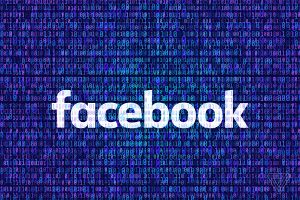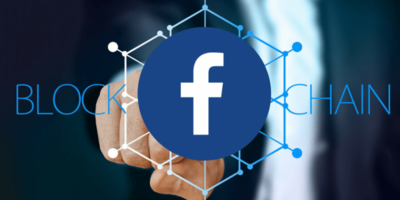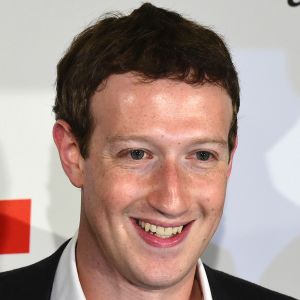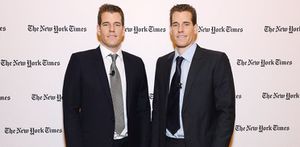
Facebook, Inc. – is an online social media company, headquartered in Menlo Park, California. Founded in 2004 by Mark Zuckerberg and his fellow Harvard College students, Facebook was initially created for college students communication. By 2006 anyone over the age of 13 could join Facebook. Today Facebook is considered to be the world’s largest social network with more than one billion users worldwide, one of the Big Four technology companies along with Google, Apple and Amazon, and one of the world’s most valuable companies. Facebook offers other products and services. It acquired Instagram, WhatsApp, Oculus, and GrokStyle, developed Facebook Messenger, Facebook Watch, and Facebook Portal. This service can be accessed from devices with Internet connectivity (personal computers/desktops, tablets, and smartphones). After registering and profile creation, users can post photos, texts, video, and gifs which can be shared with any other people. Users can also join common-interest groups, and receive notifications of their friends’ activities.
Contents
Leadership
- Mark Zuckerberg – Founder, Chairman and Chief Executive Officer
- Sheryl Sandberg – Chief Operating Officer
- › dwehner/ David Wehner – Chief Financial Officer
- › schrep/ Mike Schroepfer – Chief Technology Officer
Board of Directors
- Mark Zuckerberg– Founder, Chairman and CEO, Facebook
- Sheryl Sandberg– COO, Facebook
- Peggy Alford – SVP, Core Markets, PayPal Holdings
- Marc Andreessen – Co-founder and General Partner, Andreessen Horowitz
- Kenneth Chenault – Chairman and Managing Director, General Catalyst
- Susan Desmond-Hellmann – M.D., M.P.H. CEO, Bill & Melinda Gates Foundation
- Peter Thiel – Co-founder and Partner, Founders Fund
- Jeffrey Zients – CEO, The Cranemere Group
History of foundation
Mark Zuckerberg created a website called “Facemash” in 2003 while studying at Harvard University. It was like Hot or Not and offered users to watch two random photos for choosing the hotter person. All images were collected from the online facebooks of nine Houses. For the first 4 hours, Facemash attracted 450 visitors and 22,000 photo-views. The site was sent to several campus list-servers but was shut down by the Harvard administration. Zuckerberg was expelled and charged with breaching security, violating copyrights and individual privacy. Finally, the charges were dropped. Zuckerberg created a social study tool before a final art history exam. He uploaded all art images to the website, each of which was supplemented by a comments section, and then shared it with his groupmates.
The name Facebook comes from a face book – a student directory with photos and personal info. In 2003, Harvard University had only a paper version with private online catalogs. Zuckerberg offered the Harvard Crimson newspaper to make a universal face book within Harvard in a week. In January 2004, Zuckerberg coded a new site, known as “TheFacebook.” Zuckerberg and another Harvard student Eduardo Saverin, each both, agreed to invest $1,000 in the website. On February 4, 2004, Zuckerberg launched “TheFacebook,” initially located at thefacebook.com.
HarvardConnection scandal
In November 2003 Cameron Winklevoss, his brother Tyler Winklevoss and Diviya Narendra offered Mark Zuckerberg to join the HarvardConnection.com team. After two months of Zuckerberg’s work postponing and “TheFacebook” launching the Winklevosses and Narendra accused Zuckerberg of intentionally misleading them and using their idea for building a competing product. Later they sued Zuckerberg, settling in 2008 for 1.2 million shares (worth $300 million at Facebook’s IPO). This entailed years of litigation and attempts to reach a peace agreement.
Facebook History
2004 – 2007
The Facebook membership was initially limited to Harvard students. In March 2004, website membership was expanded to Columbia, Stanford, and Yale students, then to remaining Ivy League schools, MIT, higher education institutions of Boston, New York University, then most universities in the USA and Canada. Andrew McCollum, Dustin Moskovitz, and Chris Hughes joined Mark Zuckerberg to help manage the website. In the middle of 2004, an informal Zuckerberg’s advisor Sean Parker (Napster co-founder and entrepreneur) became company president. In June 2004, Facebook moved to Palo Alto, California. This month the company also received its first investment from PayPal co-founder Peter Thiel.
In 2005, the company purchased the domain name facebook.com, which had belonged to AboutFace Corporation for US$200,000. In May 2005, Accel Partners invested $12 700 000 in Facebook, and Jim Breyer – $1 000 000 of his own money. In September 2005, a high-school version of the site launched.
On September 26, 2006, Facebook became available to all comers, starting from 13 years old.
On October 24, 2007, Microsoft purchased a 1.6% share of Facebook for $240 million. This purchase included rights to place international advertisements.
2008 – 2011
In October 2008, Facebook organized international headquarters in Dublin, Ireland.
In January 2009, Compete.com ranked Facebook as the most used social networking service by worldwide monthly active users. In 2009 Facebook was blocked in China.
In July 2010, Facebook announced about 500 million users. The company had become the third largest American web company after Google and Amazon.com. On November 15, 2010, Facebook announced about acquiring the domain name fb.com for an undisclosed amount.
On January 11, 2011, the American Farm Bureau Federation disclosed $8.5 million “domain sales income,” making the acquiring of FB.com one of the ten highest domain sales in history. In February 2011, Facebook announced its plans to move its headquarters to Menlo Park, California. According to a Nielsen study, in 2011, Facebook had become the second-most accessed website in the U.S. behind Google.
2012 – 2015
In March 2012, Facebook announced its App Center, a store selling applications, operated via the website. This store was to be available on iPhones, Android devices, and mobile web users. In April 2012, Facebook bought Instagram for about US$1 billion. On May 17, 2012, Facebook’s initial public offering came at a share price of US$38. Facebook was valued at $104 billion, the highest valuation to that date. At the beginning of October 2012, Mark Zuckerberg announced that Facebook had one billion monthly active users, including 600 million mobile users, 219 billion photo uploads, and 140 billion friend connections.
On January 15, 2013, Facebook launched Facebook Graph Search, a service which gives users a “precise answer,” rather than a link to it. This feature would be “privacy-aware,” returning results only from content already shared with the user. On April 3, 2013, Facebook announced Facebook Home, a user-interface layer for Android devices offering greater integration with the site. On April 19, 2013, Facebook changed its logo and removed the faint blue line at the bottom of the “F” icon and moved it closer to the edge of the box. On June 12, Facebook introduced clickable hashtags to help users follow trending discussions, or search for other meanings about on a topic. In October, Facebook joined the Alliance for Affordable Internet (A4AI). The A4AI is a union of public and private organizations that includes Google, Intel, and Microsoft. Led by Sir Tim Berners-Lee, this alliance seeks to make the Internet more affordable in the developing world. On October 13, Facebook bought Onavo, an Israeli mobile web analytics company.
In January 2014, over one billion users were connected to the website through a mobile device. In February, Facebook announced that it would buy WhatsApp mobile messaging company for US$19 billion in cash and stock and celebrated its 10th anniversary. By September, Facebook’s market capitalization had surpassed $200 billion.
On January 21, 2015, Facebook’s algorithm was renewed for filtering out false or misleading content, such as fake news and hoaxes.
2016 – 2018
In June 2016, Facebook claimed Deep Text, a natural language processing A.I. that learns user intent and context in 20 languages. In July, a US$1 billion lawsuit was filed against Facebook alleging that it permitted Hamas to use the website to perform assaults that claimed the lives of four people. Facebook released blueprints of its Surround 360 camera under an open-source license on GitHub. In September, it won an Emmy award for its short animated film “Henry.” In October, Facebook announced its fee-based communications tool called Workplace, aimed to connect everyone at work. Users can create profiles, see coworkers updates on a news feed, stream live video and participate in secure group chats. After the 2016 presidential election, Facebook announced that it would combat fake news by using fact-checkers from websites like FactCheck.org and Associated Press (A.P.). This will help to make reports about hoaxes easier through crowdsourcing, and disrupting financial incentives for abusers.
On April 18, 2017, Facebook declared about the beta launch of Facebook Spaces (a Facebook virtual reality version for Oculus V.R. goggles) at its annual F8 developer conference. In September, Facebook stated it would spend up to US$1 billion on original shows for its Facebook Watch platform.
In May 2018, at its annual F8 developer conference Facebook announced it would offer its dating service. On July 26, Facebook became the first company which had lost over $100 billion worth market capitalization in one day, dropping to $510 billion after disappointing sales reports. On July 31, Facebook announced that it had deleted seventeen accounts connected with the 2018 American elections. In November 2018, Facebook launched smart displays, Portal and Portal Plus (Portal+). These displays support Amazon’s Alexa (intelligent personal assistant service). The devices also include video chat function with Facebook Messenger.
2019 – Present
In January 2019, Facebook launched the ten-year challenge, asking users to post a photograph of themselves in 2009 and a current photo. In March 2019, the Christchurch mosque shootings criminal in New Zealand used Facebook to stream live video of the attack. It took 29 minutes to detect the live-streamed video on Facebook (eight minutes longer than it took police to arrest the gunman). About 300,000 copies were published and shared. Facebook has promised changes to its platform. Several companies, including the ANZ and ASB banks, have stopped advertising on Facebook after complete conviction of social network by the public. After the attack, Facebook started blocking white nationalist, supremacist, and separatist content, saying that they could not be meaningfully separated. Previously, Facebook had blocked only overtly supremacist content. In mid-April 2019, several British far-right organizations and associated individuals were banned by Facebook, and praise or support for them was also forbidden. In early-April 2019, Facebook informed that on April 30, 2019, it would be pulling its apps from Windows Phone, including Facebook, Facebook Messenger, and Instagram.
Facebook in Blockchain

Facebook was exploring the possibility of leveraging blockchain technology for its platform and has established a dozen-member-strong research and development team to explore the applications of this tech in its varied businesses.
On the 8th of May David Marcus, the head of Facebook Messenger, who also had experience at Coinbase and PayPal[1]. confirmed in a Facebook post the news that Facebook is going to set up the group to explore how to best leverage Blockchain across Facebook, starting from scratch. It was reported that Marcus will be joined by Instagram executives James Everingham and Kevin Weil, who helped Facebook fend off the threat from Snap with a series of rapid-fire updates to Instagram that mimicked key Snapchat features. This start was notable because of Marcus’ high profile and because the announcement came four months after Zuckerberg said in his 2018 mission statement that he was interested in studying the “positive and negative aspects” of the decentralized nature of technologies like cryptocurrencies.
Zuckerberg isn’t pulling a WhatsApp or Oculus — at least not yet — and making a multibillion-dollar acquisition to address a competitive threat. He’s giving Marcus the tools to see how blockchain can be used internally and to make sure the company is closely monitoring the broader ecosystem and where Facebook may be most vulnerable[2].
Finally, Facebook team coded their own chain to meet the following requirements:
- Able to scale to billions of accounts, which requires high transaction throughput, low latency, and an efficient, high-capacity storage system.
- Highly secure, to ensure safety of funds and financial data.
- Flexible, so it can power the Libra ecosystem’s governance as well as future innovation in financial services.
Currently Facebook Blockchain is not a blockchain in the traditional sense. It changed the Blockchain nature by having no blocks as the core data structure in its architecture.
Libra Coin
- Main article: Libra
The development of Facebook own cryptocurrency provides an interesting comparison of Bitcoin and the company itself, because Facebook has banned the promotion of cryptocurrency on its website and application in January. Also concerning “misleading or deceptive advertising campaigns,” the ban was copied to Google and Twitter.
On June 18, 2019, Facebook released Libra, its own digital cryptocurrency, and Calibra wallet.
Libra is a global monetary and financial infrastructure built on the Libra open blockchain and managed by the Libra Association, an independent, not-for-profit membership organization, headquartered in Geneva, Switzerland.
Libra Networks was registered on May 2, 2019, in Geneva. The company is engaged in the development of infrastructure and software, payment operations, financing, data analysis, blockchain, etc. The launch of the Facebook token is set on a first-half 2020. Earlier it has been reported that Libra is being financed by companies as Vodafone, Illiad, Facebook Calibra, Coinbase, Xapo, Anchorage, Bison Trails, Uber, Lyft, Spotify, Women’s World Banking, Kiva, Mercy Corps, Booking, Farfetch, Ebay, Mercado Libre, Andreessen Horowitz, Creative Destruction, Thrive Capital, Ribbit Capital, Union Square Ventures, Mastercard, PayU, PayPal, Stripe, Visa.
The entry threshold was $ 10 million. Each investor will launch its own node, which will provide access to the payment system based on stablecoin GlobalCoin.
Calibra is a cryptocurrency wallet designed for Libra cryptocurrency, created by the Facebook team and presented on June 18, 2019. The wallet will be available anywhere in the world.

